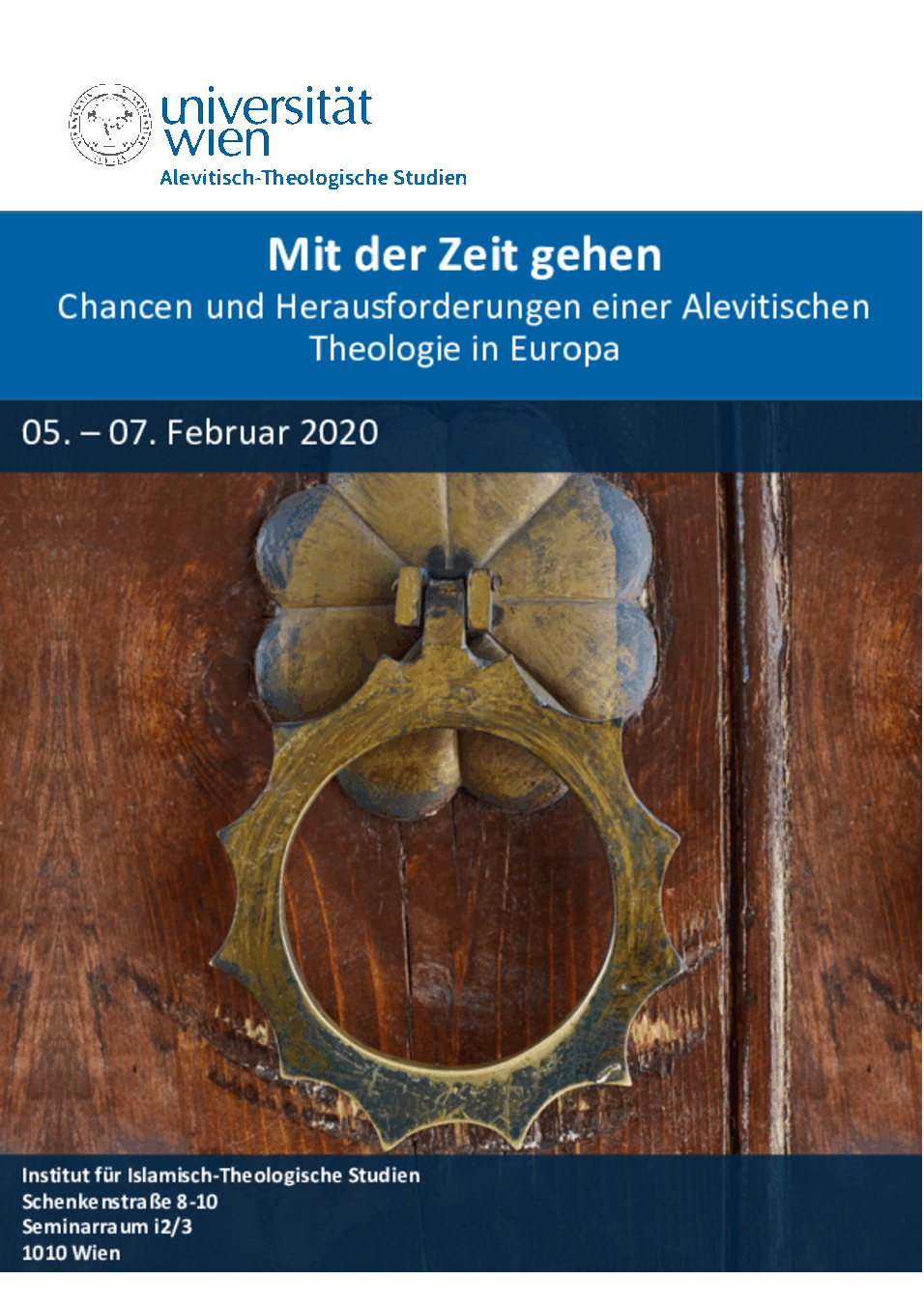Following the guiding principle Moving with the Ages (çağa ayak uydurmak), which is attributed to Imam Ali (7th century) in the oral tradition, the Chair for Alevi Theological Studies, which was founded at the University of Vienna in September 2018, held its first symposium between February 5 and 7, 2020. At the conference, experts from Catholic, Protestant and Islamic theology on the one hand and researchers from sociology, philosophy, religious studies, history and Islamic studies on the other explored the opportunities and challenges of Alevi theology in Europe.
The conference was opened with speeches by the Federal Minister for Education, Science and Research, Prof. Dr Heinz Faßmann, the Dean of the Faculty of Philological and Cultural Studies, Prof. Dr. Melanie Malzahn, and the Head of the Department of Islamic-Theological Studies, Prof. Dr Zekirija Sejdini. The public keynote address of the conference was given by the Director of the Orient Institute in Istanbul, Prof. Dr. Raoul Motika. Prof. Motika (Istanbul), who spoke to the approximately 80 participants on the topic Survival of Alevism? Assimilation or integration and self-assertion. Alevism in Turkey and Germany, marked the beginning of the conference.
The public part of the conference was followed by a two-day closed workshop in which the disciplinary diversification of Alevi theology was discussed. On this occasion, scholars of Alevi studies and "established" theologies were brought together in four thematically divided panels. After an introductory contribution by Univ.-Prof. Dr. Handan Aksünger-Kizil (Vienna) on the embedding of Alevi theology and religious education within the religious pluralisations in Europe as well as on the professional differentiation, the first panel discussed approaches to the aesthetics and philosophy of religion based on the contributions of Prof. Dr. Michael von Brück (Munich) and Dr. Cem Kömürcü (Bonn). In the second panel, Dr Cem Kara (Vienna), Dr Benjamin Weineck (Bayreuth) and Univ.-Prof. Dr Erdal Toprakyaran (Tübingen) took up historical and source-based approaches. This was followed by a third panel on religious poetry. The significance of religious poetry in Alevism and its operationalisability in theology(s) was discussed by Hasret Tiraz, MA (Leipzig), PD. Dr. Michael Reinhard Heß (Gießen) and Ass.-Prof. Dr. Jakob Deibl (Vienna). In the fourth panel, Elif Yıldızlı-Uğurlu, MA (Münster), Dr. des. Deniz Coşan-Eke (Vienna) and Univ.-Prof. Kurt Appel (Vienna) dealt with processes of communalisation, identity formation and socioreligious order. Finally, the Critical Friends of the symposium, Univ.-Prof. Dr. Roman Siebenrock (Innsbruck) and Univ.-Prof. Dr. Thorsten Knauth (Duisburg-Essen), summed up the symposium as a whole and ended with suggestions for further action.
The final discussion showed that in order to establish an Alevi theology at German-speaking universities in the 21st century, it is necessary to link general methods from the humanities, cultural studies and social sciences with theological questions. For the qualification of Alevi theologians, religious educators, pastoral workers and community workers, Alevi sources and traditions both past and present are to be researched, taught and introduced into the dialogue of society as a whole. This requires further interdisciplinary, reflexive, as well as gender-specific and, above all, "dialogue-oriented" thinking. A process that was initiated and will be continued with valuable colleagues at the University of Vienna.

